Never Do This With Your Phone in Public, FBI Warns
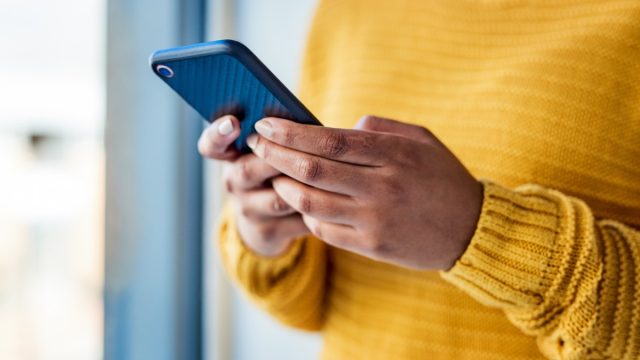
Our cell phones go with us just about everywhere now, from room to room in our homes to our daily errands and appointments outside of the house. Most of us aren’t worried about losing our phone or getting it swiped by thieves, but there are other safety issues we probably haven’t even considered. The Federal Bureau of Investigation (FBI) is now looking to warn Americans about more than just keeping a watchful eye on their devices around strangers. Read on to find out what the agency says you should never do with your phone in public.
READ THIS NEXT: The FBI Says All Americans Must Take These Precautions in Urgent New Warning.
The FBI has given several phone-related warnings to Americans recently.
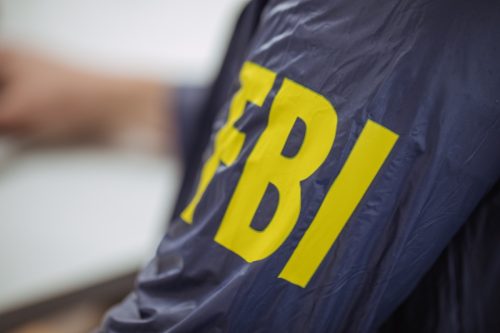
This is far from the first warning the FBI has given about our phones. Back in April 2021, the agency released a public service announcement in New England, warning that scammers were calling people and posing as representatives from government agencies. The agency said that this con tries to convince victims that charges had been or would be filed against them unless they paid up.
Then in January of this year, the FBI issued a warning urging people to be wary of using their device to scan untrusted QR codes in public. According to the FBI, “cybercriminals are taking advantage of this technology by directing QR code scans to malicious sites to steal victim data, embedding malware to gain access to the victim’s device, and redirecting payment for cybercriminal use.”
Of course, that’s not the only thing you shouldn’t be doing with your phone in public.
The agency has another warning for phone users.
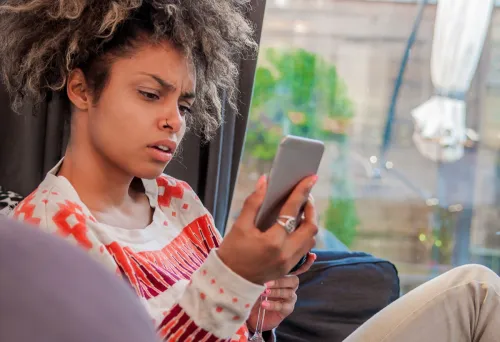
Since we take our phones everywhere and use them constantly, most of us have at some point run into the inevitable problem of having the battery die while we’re out and about. But if you didn’t bring a charger with you, don’t be tempted to use any available option. The FBI actually cautions people against using the free phone charging stations that you may see in airports, hotels, or shopping centers.
“Bad actors have figured out ways to use public USB ports to introduce malware and monitoring software onto devices that access these ports,” the agency warns.
RELATED: For more up-to-date information, sign up for our daily newsletter.
This type of cyber crime is a relatively new safety concern.
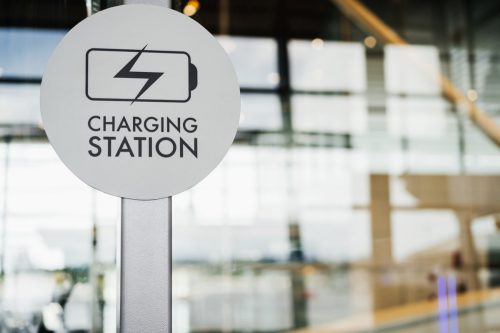
The Federal Communications Commission (FCC) issued a warning about this “new cyber-theft tactic” in 2021, referring to it as “juice jacking.” According to the agency, malware installed by scammers onto public USB charging stations can lock your device as well as export personal data and passwords off of your phone. “It’s easy to modify the outlet if the attacker has physical access,” Vyas Sekar, PhD, a professor at CyLab, a security and privacy research institute at Carnegie Mellon University, told The New York Times.
Once they’ve gotten ahold of your personal information, scammers will use it to either access your online accounts or sell it to other criminals, according to the FCC. “A free charge could end up draining your bank account,” Luke Sisak, a deputy district attorney for the Los Angeles County District Attorney’s Office, said in a 2019 fraud alert video.
Officials are urging people to take measures to avoid falling victim to this crime.
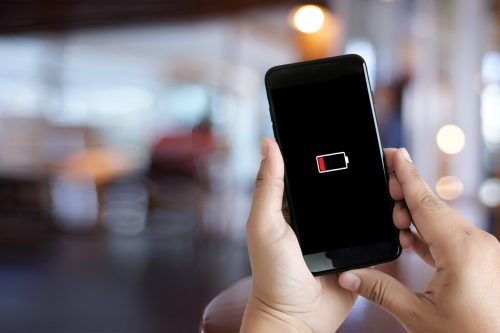
There are certain signs that free charging stations have been compromised. According to the FCC, criminals sometimes leave cables plugged in at these stations, but The New York Times reported con artists might even offer up infected cables as a promotional gift. “You can easily brand these things so you can make it look like any other cable,” Liviu Arsene, a cyber security expert at BitDefender, a Romanian cybersecurity and antivirus software company, told the newspaper. “When people see it, they don’t really think or expect it to be malicious in any way.”
Ultimately, the safest bet according to the FBI is to “carry your own charger and USB cord and use an electrical outlet instead.”
If you do need to use one of these free charging stations, the FCC advises that you carry a charging-only cable, “which prevents data from sending or receiving while charging, from a trusted supplier.” Sekar also told The New York Times that consumers can buy and use protective devices known as “USB condoms” that can attach onto USB cables.
“They essentially disable the data pin on the USB charger,” Sekar said, noting that this means the device will charge but that the cable will be unable to send or receive data. “For less than five bucks you can buy it, and that can actually save you.”